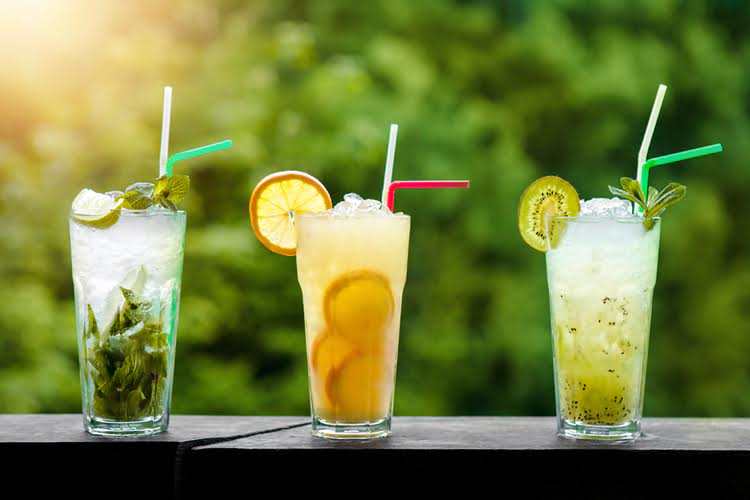For individuals who have a low level of the enzyme called Alcohol Dehydrogenase (ADH), they more slowly eliminate the metabolite of ethanol -acetaldehyde. In fact, 46% of Japanese and 56% of Chinese individuals are deficit of this enzyme and is commonly called “Asian Flush”. Amongst Caucasians, almost half of all females and just 8% of all males have a similar deficiency [2]. These potential culprits vary from wine to wine, so if you don’t want to give up red wine altogether, you might try different brands or grape varieties to see how they affect you.
- We’ve been using sulfites as food preservatives for thousands of years.
- If it’s going to give you a headache, it’ll do so within 15 minutes.
- Sulfites are an ingredient used to make beverages and foods last longer.
- Unbeknownst to many, Red Wine contains several potential allergens.
Sneezing from chemical and physical irritants is not due to the release of histamine, so most antihistamines would not be expected to help in these cases either. Remember those old Learn What Spiritual Malady Is And The Role It Plays In Your Recovery cartoons when black pepper was used to launch a character into a sneezing attack? Black pepper acts as a chemical irritant on the nerves in the nasal mucosa, which causes sneezing.
Can I be allergic to red wine but not white wine?
For example, an individual consuming Red Wine may develop a rash as well as shortness of breath which is considered to be anaphylaxis [9]. Health care providers often first make sure a person’s symptoms aren’t caused by allergies. So you may need skin or blood tests to find out if you have allergic rhinitis. Other chemical irritants that cause sneezing include strong odors, perfumes, foods, and tobacco smoke. These triggers cause non-allergic rhinitis, as there are no allergic antibodies behind the symptoms. People with alcohol intolerance react quickly to consuming alcohol.
- An alcohol allergy and alcohol intolerance are two different conditions.
- As it turns out, understanding your alcohol-induced stuffy nose starts with understanding how your body processes alcohol — or tries to, anyway.
- It is not only possible to have an allergic reaction to alcohol; other types of food and drinks can also be affected.
- Alcohol can occasionally be used to safely combine medications, but some of these medications can have unpleasant (even dangerous) side effects.
- Continue reading to learn more about wine allergies, the potential allergens in wine, and how to know if you’re allergic to them.
Some people who would be able to tolerate five ounces of red wine might frequently have their sensitivities triggered by a generous glass. If the allergic reaction is more severe, people may require epinephrine, also known as an EpiPen. A person with severe allergies should carry one with them at all times, in case of a serious allergic reaction.
Red Wine Allergy & Intolerance– What Are They?
However, a person is usually allergic or intolerant to certain ingredients in the drink, rather than the alcohol itself. A skin prick test should take place in a medical setting in case of a severe allergic reaction. An allergy or intolerance to alcohol is not always responsible for symptoms occurring after drinking alcohol.

In ancient Greece, wine was generally drunk with water; to drink undiluted wine was attributed to the Barbarians. In Greece, pure wine was only used for the ritual of libation at the beginning of a symposium. During the time of the Roman Empire, viticulture spread over great parts of Europe with the conquering of legions.
Alcohol (ethanol) metabolism and genetically determined hypersensitivity reaction
HTPs, which are released as a result of the allergens in wine, can cause asthma attacks. Despite the fact that it is not the only food source, wine is one of the most common. If you have a wine allergy, you should be aware that drinking wine can also trigger an asthma attack. Despite the fact that wine is not the only food that contains histamines, it is one of the most common allergenic foods. If you are suffering from asthma, it is critical that you consult with your doctor about your wine allergy. They can help you determine which foods are causing your asthma and advise you on how to avoid them.
If you’ve ever had a glass of wine make you sneeze, you’re not alone. There are a few different reasons why wine can make you sneeze, and it’s usually nothing to worry about. One reason why wine may make you sneeze is because of the histamines that are found in wine.
Mild and Moderate Reactions
He probably did not mean hypersensitivity reactions, but the famous “hangover” or alcohol intoxication. If you have any severe or painful symptoms after drinking alcohol, don’t just brush it off as alcohol intolerance. These side effects could be caused by a serious allergy and warrant a visit with your doctor to address your symptoms. If you have a wine allergy, you may experience symptoms such as a rash, nasal congestion, wheezing, or a tingling sensation around your mouth and throat. In some cases, reactions can be very severe, leading to anaphylaxis. Anaphylaxis is a severe type of allergic reaction and is a medical emergency.
Two common symptoms are facial flushing, in which the skin on the face quickly turns red, and nasal congestion. But if you’re getting an itchy rash or experiencing abdominal pain, then another allergen called histamine is the more likely cause. People with histamine allergies may even experience https://en.forexdata.info/top-10-best-sober-houses-in-boston-ma-january-2024/ headaches, though probably not as severe as the migraines that can be triggered by cogeners, says Bonci. Although not a true allergy, in some cases, what seems to be alcohol intolerance might be your reaction to something in an alcoholic beverage — such as chemicals, grains or preservatives.
If it’s going to give you a headache, it’ll do so within 15 minutes. Paying attention to which beverages cause symptoms can help people manage their alcohol intolerance. However, only two of the 68 participants have a medically diagnosed allergy. This figure represents people whose symptoms are traceable to what the manufacturers made the product from and its production process, not the alcohol itself. These range from heart and liver damage to a greater risk of certain cancers.
